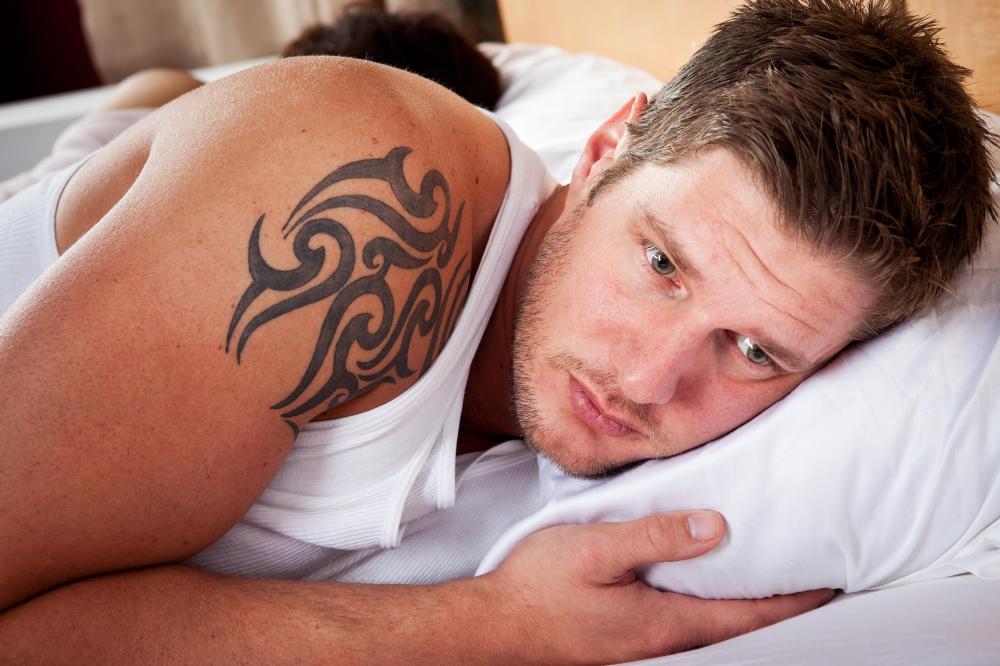At WiseGEEK, we're committed to delivering accurate, trustworthy information. Our expert-authored content is rigorously fact-checked and sourced from credible authorities. Discover how we uphold the highest standards in providing you with reliable knowledge.
What is Shift Work Disorder?
Shift work disorder is a sleep disorder that can affect people who frequently rotate working hours, or to those who work at night. This disorder, also known as shift work sleep disorder or SWD, often causes sufferers to have trouble sleeping when they need to be in bed, and trouble staying awake when they need to be at work. Shift work disorder does not happen to every worker with irregular shifts, but is almost exclusively seen in this type of person. Working and sleeping outside of the body's natural cycle can lead to this condition.
People who work one shift for a day, a week, or a month and then switch to completely different shift for a similar time period might suffer from this disorder. When people often have to adjust their sleeping and activity schedules repeatedly, it can cause the body to get out of sync with it's usually sleep-wake cycle. For many of these people, the body fights to stay awake during the day — when the shift worker needs to sleep. This troubled sleep, combined with the body's natural desire sleep at night, can cause extreme tiredness when the worker wants or needs to be awake.

The most common symptoms of shift work disorder are restlessness, sleepiness, and insomnia. People who suffer from this disorder have trouble adjusting to the changes in their sleeping hours and waking schedules. Shift work disorder is the most common in people who work 10:00 p.m. to 6:00 a.m. These people often suffer from headaches, lack of energy, and difficult concentrating.

Shift work disorder can cause a number of problems in both home and work life, and lead to an increase in irritability and mood problems. Extreme sleepiness and lack of concentration can lead to more accidents and mistakes at work and often results in a higher use of sick leave time as the disorder can leave a sufferer disoriented and unable to work. The wakefulness caused by shift work disorder disrupts the natural circadian rhythm of a person working these shifts. The body is naturally inclined to get tired and wake up at the same times, and shift work disorder places extra stress on these natural rhythms.
Problems with shift work disorder can be dealt with in a number of ways. The first step for someone who works an irregular or night shift and who is having sleep problems is to talk to a doctor to gauge the seriousness of the disorder. From home, a person can help to deal with their disorder while still working the same shift by ensuring that he normalizes his sleeping schedule as much as possible.
If possible, a person may want to decrease the number of irregular shifts he works in a row or try to add days off before or after these shifts. Excessive overtime and prolonged shifts should also be avoided. When at home, the best thing a person can do is to get enough sleep on his days off.
AS FEATURED ON:
AS FEATURED ON:












Discussion Comments
I have commonly worked 12-hour swing shifts. This basically means that for a week or month I would work from 5 a.m. to 5 p.m. then I would switch and work from 5 p.m. to 5 a.m. for a designated period.
Changing shifts regularly took a little adjustment time, but the biggest obstacle I had to overcome was working the night shifts. When I switched from the evening/morning shift to the day shift, my body quickly made the adjustment. When I made the switch in the other direction, it was agony.
I know night shift work is a reality we are not likely to do away with, but it is not natural for the body. Working nights and sleeping days puts extra stress and strain on the body.
When I worked third shift, there was no title or label to describe the issues I and many of my coworkers had with sleep. However, sleep was a common topic of conversation among us; it was a common bond.
Explaining why I was sleepy even when I stayed in bed twelve hours during the day was difficult when I was talking to someone who had no experience working the night shift. I was always tired, and I was sleepiest right before I had to go into work.
Sometimes during the middle of the night, around 2 or 3 o'clock I would get so sleepy that it was all I could do to stay awake. This condition would last for 30 minutes to an hour then I was wide awake again.
Post your comments